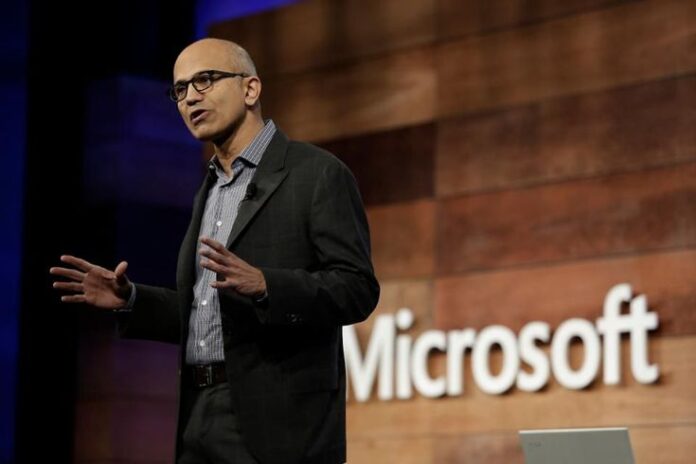In a momentous antitrust showdown between tech titans, Microsoft CEO Satya Nadella took the witness stand on Monday, dismissing Google’s claim that it’s easy to change defaults on computers and smartphones as “bogus.” This pivotal legal battle, overseen by Judge Amit Mehta at the U.S. District Court for the District of Columbia, marks a once-in-a-generation clash between the U.S. Justice Department and Alphabet’s Google.
Nadella’s testimony aimed to counter Google’s argument, emphasizing the complexities of altering default settings on devices. He also revealed that Microsoft, a formidable player in the tech industry, had attempted to establish its Bing search engine as the default choice on Apple smartphones but faced resistance.
At the heart of this legal dispute is the government’s contention that Google, commanding over 90% of the search market and valued at more than $1 trillion, engaged in unlawful practices by annually paying hefty sums, around $10 billion, to smartphone manufacturers like Apple and wireless carriers such as AT&T, among others, to secure its position as the default search engine on their devices. This market dominance has propelled Google to a dominant position in the lucrative advertising sector, significantly boosting its profits.
“Changing defaults today is easiest on Windows and toughest on mobile,” Nadella asserted, shedding light on the intricate nature of default settings on various platforms. He humorously added, “You get up in the morning and you brush your teeth and you search on Google,” underscoring Google’s pervasive influence in the world of online search.
Judge Amit Mehta, presiding over the case, probed Nadella on why Apple, known for its commitment to quality, would opt for Bing as the default search engine despite its perceived lower quality compared to Google. This line of questioning indicates that the judge is keen on understanding Google’s argument that its dominance stems from the quality of its services rather than illegal activities.
In response, Nadella stated that Microsoft had strived to demonstrate that Bing’s engineers possessed the capability to “bridge the quality gap” through increased access to query data generated by Apple smartphones.
Transitioning to the burgeoning field of artificial intelligence (AI), Nadella testified about the competitive landscape in acquiring content libraries to train large language models for AI development. He likened these efforts to the early stages of distribution deals in the tech industry, noting that when meeting with publishers, there is a sense of rivalry driven by financial incentives. Publishers, he revealed, often mention Google’s substantial financial contributions and exclusivity deals, pressuring other tech giants to match them.
Satya Nadella assumed the role of Microsoft CEO in 2014, long after the company had grappled with its own federal antitrust lawsuit, initiated in 1998 and resolved with a settlement in 2001. This earlier legal battle compelled Microsoft to alter certain business practices and opened doors for emerging competitors, including Google.
The rivalry between Microsoft and Google, both born in the late 1990s, has been characterized by competition in multiple domains, including web browsers, search engines, email services, and, more recently, artificial intelligence ventures. Microsoft has made substantial investments in OpenAI, while Google has ventured into AI development with initiatives like the Bard AI chatbot.
As this landmark antitrust battle unfolds, the tech industry watches closely, aware of its potential to shape the future of competition and innovation in the digital realm.


